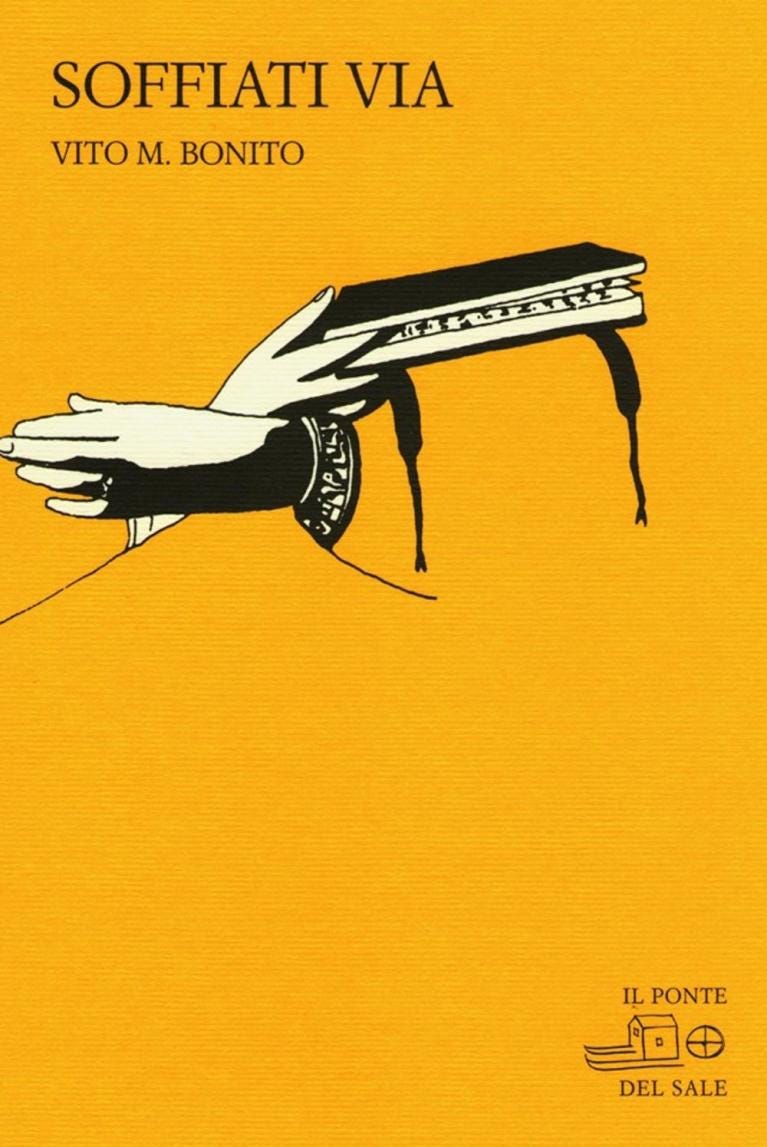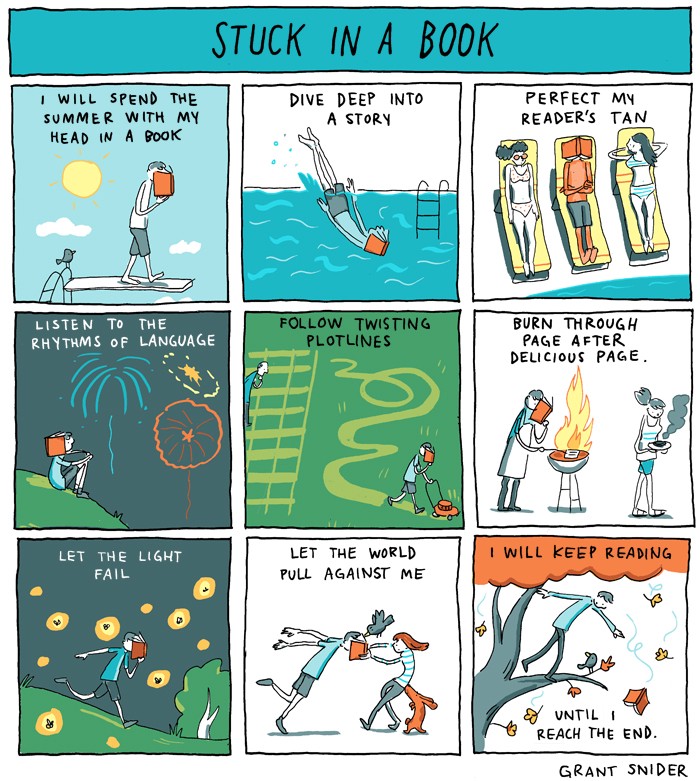Books & Culture
The Pleasures of Influence: Escaping Ourselves, Dreaming Someone Else’s Dreams
On translating Vito Bonito’s Soffiati via

Standing outside of bars smoking hand rolled cigarettes with Vito Bonito, who I call my poet for shorthand. By the time I have finished writing this I will have become someone new. Our first meeting is at a poetry reading or lecture organized by Paolo Valesio, the esteemed poet and professor at Columbia University. The reading is in a museum of pre-pianos, keyboard instruments I don’t have all the names for.
The event is terrible. I show up and there is a woman I’ve met before with my friend Todd, when he had a residency in Rome and came up to Bologna to give a reading. She thinks we’re friends, she’s just moved back to Italy after forty years in New York, she makes racists remarks one after another. We sit and wait and I wait to lay my eyes on Vito Bonito. He lives up to all expectations. He’s around fifty, wears bulky silver rings and dark clothes. He smokes nervously out the window waiting for this discussion to finally begin. The reading is more of a lecture than a reading and some friend of his, or some acquaintance, never stops explaining the poems. When Vito does finally speak he reads his poems with clarity and deliberateness. I go up to Vito after the reading and introduce myself. The woman who thinks we are friends, also a translator, makes a joke, saying I stole a great poet from her to translate. She is the only one who laughs.
The woman who thinks we are friends, also a translator, makes a joke, saying I stole a great poet from her to translate. She is the only one who laughs.
Outside, the smoking begins. In the rain, Vito begins to roll cigarettes. He teaches Latin at the city’s most prestigious high school, where Pier Paolo Pasolini studied, and some of Vito’s students gather around him, asking him questions. It becomes clear they seem him as a cult figure. We move to a bar to have some wine. It is a strange group of people, all of us together, I don’t know who most of them are. It doesn’t appear that Vito knows them either. In the crowd I meet a woman who looks so familiar to me I actually ask her if I know her. She seems offended. She is Vito’s girlfriend; she thinks I am one of his students. I clarify, explain how I want to translate his poems, explain how I’ve been in Bologna for six years, how I live here with my partner, my female partner. She seems reassured.
It begins like this and moves rapidly forward. I meet Marilena, the girlfriend, for coffee on Monday mornings when I’m not teaching. She is a remarkable poet and short-story writer; we talk about translating Anne Carson’s Short Talks together into Italian. I meet Vito Wednesday afternoons when he isn’t teaching. It becomes a whole world. Both of them begin to recommend new books of contemporary Italian poetry to me — this is my second MFA. Reinforcing my idea, the idea that many have had before me, that translating is the best school for learning how to write.
Reinforcing my idea, the idea that many have had before me, that translating is the best school for learning how to write.
Translating changes how you write. I’ve always believed this. But now, after translating an entire collection of poems, I feel even stronger about this notion. Translating and working with a living author also changes how you read. The artist Moyra Davey writes in her book, The Problem of Reading:
“What to read? is a recurring dilemma in my life. The question always conjures up an image: a woman at home, half-dressed, moving restlessly from room to room, picking up a book, reading a page or two and no sooner feeling her mind drift, telling herself, “You should be reading something else, you should be doing something else.”
I jump off from different points when I am pretending to be Bonito, Bonito II. My reading takes me to different place. I have a new teacher in each of Bonito’s influences. Only some of them are literary. I soon begin to see that many of them are cinematic, sound and image. Being who I am, I gravitate towards the sounds.
That weekend, after talking with Vito endlessly about the great 19th century Italian poet Giovanni Pascoli, I see Pascoli everywhere. There is one poem in particular that I see as really deeply connected to Soffiati via: “I due fanciulli” and I decide to translate it myself:
In bed, the darkness the sheaf, flooded
with the most dense shadow: illusinve shadow, the seems
at every corner to raise its finger along the hem.
Away away made the biggest sobs and the rarest
weeps, for what blackness I know not
that one feels as it passes in this silence.
After a short while, tacit, little by little,
came the mother, and she explored with the soft light
revealed just so with her rosy hand.
She watched suspended; better than usual
she saw them sleep, tightly embracing
with their white arms, without feathers;
and she moved away, with a smile, from the bed.
Pascoli’s poems also include a word Bonito uses quite often, iddio. This was a new aspect of translation for me — creating entirely new words to represent an idea that doesn’t exist in English. Iddio is an antique form for God. It is both sacred and profane. We decided on mygod. It seems like a piece of the ubiquitious “Ohmygod” and also, visually, looks almost Norse, antique, premodern English.
This was a new aspect of translation for me — creating entirely new words to represent an idea that doesn’t exist in English.
Moyra Davey in The Problem of Reading goes on to say :
Jean-Paul Sartre and many other writers have said reading is writing, by which I understand that as readers we are always piecing together meaning and, in a sense, writing our own texts by weaving the threads and associations of previous readings and experiences. But by this I don’t mean to suggest that reading and writing are one and the same — writing is infinitely harder. The central question I mean to pose is, what if the most gratifying reading is also the one that also entails the risks of producing a text of one’s own?
I would venture to go beyond agreement and say that translation is exactly this activity. I read Bonito’s poems so many times, transcribe each of them by hand first in the Italian and then into English, repeat this on the computer, and revise three, four even five times. These readings turn into writing.
Translating disrupts many of the theoretical conventions I hold about literature and writing, about process itself. One of these conventions has to do with biographical information about the writer. I really feel strongly about Barthes’s notion of the dead author. I don’t believe in biographically based criticism, yet I find myself searching down every route Vito gives me in hopes of better understanding his book.
I don’t believe in biographically based criticism, yet I find myself searching down every route Vito gives me in hopes of better understanding his book.
For a long time I’ve been worried about the anxiety of influence when writing my own work while translating. As if there is really a division between these two activities anyhow. Not so much in my writing as much in my life. If, like Paul Ricoeur argues, we are beings made of mediated experience,writing “there is no self-understanding that is not mediated by signs, symbols, and texts; in the final analysis self-understanding coincides with the interpretation given to these mediating terms” (“On Interpretation”, in From Text to Action) the the level of influence we carry around with us is great, in fact, it is everything.
Arnold Schoenberg wrote: “When the form’s in place, everything within it can be pure feeling.” If this is true, and I think it is, translation should be less preoccupied with quote, “accuracy” and much more interested in feeling, tone, sound, image. Translation gives us form, the shell of language, all of my own voices, now mixing with the other author’s give it something new — make content. This is what I am searching for in my readings of Bonito’s influences, I am looking for the feeling.
Translation gives us form, the shell of language, all of my own voices, now mixing with the other author’s give it something new.
Working with a living poet, a poet who lives in my own city, is a strange experience because he can lead me directly to his points of influence and inspiration. I’ve decided it is a good thing, or it least has some positive value for the process. As a writer I firmly believe that the text should speak for itself, that whatever a reader needs from a text can be found their on the page. Cultural context can be essential. But the intentions of the author? No. But the feeling — somehow, I continue to reach for a primordial language I know does not exist, not even in the original text, through Vito’s resources.

This is a point of conflict because I want both things to be true. I think I can better translate these poems if I can understand them better; one way to understand these poems better is to get closer to their points of reference. What I worry about is if in some way, in my subconscious, I am seeking to uncover a “real” meaning or significance, when rationally, philosophically, I believe the real meaning of the poems is only to be found within the poems.
One of the most beautiful things about translation for me continues to be the possibility of spending time in someone else’s creative conscious.
But despite all of this, one of the most beautiful things about translation for me continues to be the possibility of spending time in someone else’s creative conscious. There are times when I get really sick of myself, or bored with the ideas and questions that keep churning in my brain; translation lets me escape these curiosities for a while and move on to someone else. But then, sometimes, another person’s creative conscious is deeply different from our own. In this case, Bonito asks a lot of questions and presents a lot of images around childhood that I haven’t thought deeply about.
Translating sets off a different chain of thought than one’s own writing does and thus a different chain of signifieds. What I think is going to be my plan for reading this semester is over taken with Vito’s suggestions and these lead to new undiscovered pathways, pathways that I would have previously been resistant to. Moyra Davey quotes Georges Perec in her book on reading: “‘putting off until tomorrow what you won’t do today, you finally re-devour [it] lying face down on your bed.’ He further speculates that in our pursuit of knowledge, ‘order and disorder are in fact the same word, denoting pure chance.’ ” Suddenly, it all relates to Bonito. Or Bonito ties it together — I’m not sure which.
What I think is going to be my plan for reading this semester is over taken with Vito’s suggestions.
As if in a premonition I was forced by my best friend’s girlfriend to watch Kids for the for the first time in ten years before starting the translation of these poems. Sitting on her couch in Bushwick, fuzzy from the night before, Korine’s violent vocabulary came back to me as something relevant and new.
I’d seen some of Harmony Korine’s films before but I hadn’t seen Gummo. It’s the sound of the voices. In the film an entire town is torn from the earth from a tornado. It is with this same swift motion that Bonito writes of these children swept from the earth. There is also the dadaist imagery of hands and feet sticking out from the tornado — the children in the poems also have dismembered bodies, missing hands and feet, they see themselves from above.
Giovanni Pascoli also writes about dead children, or about the dead children inside of us in some cases. By chance, like Davey’s points out, I found his book Il fanciullo in a bookshop one weekend. It is a book that talks about the child within each of us, about the child’s voice that never stops crying out. I set out to translate some of that book as well:
Inside each of us is a child, not only does he shiver […], but weeps still and has his own joys. When we are still young, he confuses his voice with ours, and the two children tumble and fight against each other, and always together, they fear, hope, enjoy and cry, they feel the beat of one heart, one shout and a singular yelp. But we grow and he remains small; we set our eyes on new desires and he holds his eyes fixed on his ancient serene wonder, our voices become big and rough, but his remains the soft ring of a tiny bell. […] But after even thirty centuries men are not born thirty year olds, and even after they’ve lived thirty years in some way they remain children.
The theme of the child’s permanent place in society, or the child within us that is never liberated is further explored in Avital Ronell’s essay “On the Unrelenting Creepiness of Childhood”:
The figure of the child, which in the end inserts an imaginary lesion in philosophy — a condition that calls out for endless symbolic repair — may be borne by the anguish of the différend. That is to say it enters, or is entered, into the places where speech falters and language chocks in the throat of a political body, where the question of fair representation is peremptorily dismissed or simply not addressed.
Childhood can last a whole lifetime if you find yourself throttled and unable to root out some representation of what is affecting you; this can happen every day. “I am speaking of this condition of being affected and not having the means — language, representation — to name, identify, reproduce, and recognize what is affecting us.” If I am not mistaken, Lyotard uses childhood to resist the modern Western ideal of emancipation; he manages to deflate the reverie that has you thinking you’ll get out from under the grip of the mancipium.
This idea of childhood, this lack of freedom, is what makes Bonito’s poems about childhood and death so disturbing, something of each of us has remained in that state. This state of disenfranchisement is common to children but also to all people lacking a common language. In the film In the Land of Silence and Darkness Werner Herzog explores a deaf and blink community in Germany. Often ignored by society and their families, these communities create a language of touch, using hands (a major trope within Bonito’s work) in order to communicate.
Then on a meta-level, I am the child, translating, listening to the voice of my poet-genitor, Ronell again:
Freedom is signaled, one could say, within the Heideggerian conjunction of Hören and Gehorsam, of hearing and adhering. Listening is an extreme form of obedience, of opening and giving oneself over to the voice of the other.
As I read this I think of another statement Ricoeur made, this time in his book On Translation, writing “The creative tension between the universal and the plural ensures that the task of translation is an endless one, a work of tireless memory and mourning, of appropriation and disappropriation, of taking up and letting go, of expressing oneself and welcoming others.” It is this invitation towards the voice of the other that makes translation a dialogue as well as a practice for all forms of writing. There is listening always and freedom in the choices of adherence.
Again, I find myself searching for the sounds, for the voice of my poet. I’m far from the first to attempt this metaphysical swap. In recent times the author David Rattray has explained this well, in “Transcript of a Talk on Translating Artaud,” he writes:
I worked very hard and put myself into it in a way that I think absolutely indispensable for somebody translating a writer like Artaud. You have to identify with the man or the woman. You have to identify with their work. If you don’t, you shouldn’t be translating it. Why would you translate something that you didn’t think had an important message for others?
More and more I believe translating is similar to acting. Acting is seeing the text meet the body of the actor and take new life.
More and more I believe translating is similar to acting. Acting is seeing the text meet the body of the actor and take new life. The same goes for the translator, the text meets a new body, a new system of signifiers and signifieds. For some, this means becoming the original author. Rattray implies some of this, but perhaps Borges’s fictional Pierre Menard represents (as George Steiner has pointed out) the heart of every passionate translator. When Borges writes:
Those who have insinuated that Menard devoted his life to writing a contemporary Quixote besmirch his illustrious memory. Pierre Menard did not want to compose another Quixote, which surely is easy enough — he wanted to compose the Quixote. Nor, surely, need one be obliged to note that his goal was never a mechanical transcription of the original; he had no intention of copying it. His admirable ambition was to produce a number of pages which coincided — word for word and line for line — with those of Miguel de Cervantes.
Menard explains himself in a fictional letter within the story:
I have assumed the mysterious obligation to reconscruct, word for word, the novel that for him was spontaneous. This game of solitaire I play is governed by two polar rules: the first allows me to try out formal or psychological variants; the second forces me to sacrifice them to the “original” text and to come, by irrefutable arguments, to those eradications…In addition to these first two artificial constraints there is another, inherent to the project. Composing the Quixote in the early seventeenth century was a reasonable, necessary, perhaps even inevitable undertaking; in the early twentieth, it is virtually impossible. Not for nothing have three hundred years elapsed, freighted with the most complex events. Among those events, to mention but one, is the Quixote itself.
Like Riceour suggests, Menard in taking up the life of Cervantes, adheres to new rules and loses something of himself in the process.
Being, somehow, Cervantes, and arriving thereby at the Quixote — that looked to Menard less challenging (and therefore less interesting) than continuing to be Pierre Menard and coming to the Quixote through the experiences of Pierre Menard. … “If I could just be immortal, I could do it.”
If I could just be immortal, I could make this translation “perfect!”
If I could just be immortal, I could make this translation “perfect!” But that isn’t possible. More and more I see convergences between myself and Vito, our points of references, our poetic voices. I realize I’ve always had these pieces in me, from the music of Daniel Johnston and Sleep to the images of the publisher kiddiepunk and its gothic aesthetic of childhood. It may be that I’ve always been drawn to the creepiness of childhood, always interested in the voice I can almost nearly access, trapped within me. It is Bonito’s poems that are giving this aesthetic new freedom. The rhythms and sounds and language of his imagination and given new life to my solitary brain.









